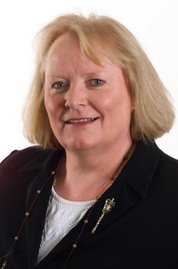Saturday morning and it's Mike's turn to walk the dog while I prepare breakfast. He's out by 7 and I take my time with his porridge. Hear the wail of sirens - police are busy...Mike returns. He is shaken. Caught up in a car chase - silver astro and 3 police cars. The astro crosses the carriageway, high speed heading straight for Mike and swerves only at the last moment. The police continue the chase. Their professional calm, risking personal safety impresses Mike.
Sunday's papers full of moral panic about the welfare of our children - gun shootings, UNICEF finding our children are the least safe in the western world, David Cameron declaring the future of our children is more important than the economic agenda. Stirring stuff.
On Thursday I read a report about educational achievement in 7 of the local primary schools which demonstrates that 83% of local children live in data zones that account for 20% of Scotland's lowest achieving (educationally speaking) communities. It makes depressing reading. Coincidentally, I visited all these schools recently. Most are housed in brand new buildings (whatever your view of PFI, it certainly allows for fantastic schools) and some of the children I met would make you weep.
One wee girl aged about 8, sobbing, eyes red & swollen, inconsolable:
'What's wrong?'
'This is her first week. She's finding it tough.'
''First week here?'
'No. First week at school.'
'But she must be 8. How has that happened?'
'Dad wouldn't let her mum bring her.'
She's eight, can't read, can't write, doesn't know how to sit in class, or play with the friends - can't stay awake because she's used to sleeping most of the day - I call that cruelty but her dad and mum both love her and she loves them. She's crying because she wants to be back home with them.
Another school: the headteacher tells me 40% of her pupils are under some form of social work supervision: one wee boy aged 6, parents both drug users and nowhere for him to go over Christmas. No foster family only a secure unit, so the headteacher takes him home with her for the holidays. She deserves a medal.
The council has poured money into providing services for vulnerable children like these and put even more in this year but it has the dispiriting feel of sticking fingers into dykes.
Drugs and alcohol in too large and consistent quantities make people lose their moral compass. Yet our society has a far too ambivalent approach to both. If you're even reasonably well off then taking drugs or too much booze is hip: if poor, it becomes a scourge. Those with enough money can turn to a broad base of support for help when a drug problem runs out of control. If you're poor then there isn't much.
Thatcher's housing revolution which substituted public responsibility with private investment has never been addressed by Blair. So the poor have effectively been ghetto-ised. No community comprised largely of people who are poor as a result of chronic ill health, disability, age or infirmity has enough internal capacity to withstand the added impact of a statistically significant number of people who are also crippled by substance abuse. So, if you're poor and have a drug/alcohol problem you're effectively on your own...and so are your children.
So, Mr Cameron and Mr Blair, let's see some action on social housing policy that breaks up the concentration of poor people living together in one area: let's see some consistency on public attitudes to drugs and alcohol and then maybe, just maybe all the investment for vulnerable children and families would pay some dividend.
But that also means we've all got to change our attitudes too. Most of us like a drink, too many take a relaxed attitude to drugs (Mr Cameron's response last week was lame to say the least) and most don't really care where the poor live so long as it's not too obviously close to us. Until we're really serious about addressing our own attitudes then don't expect much change at the top.
Sunday, 18 February 2007
Subscribe to:
Post Comments (Atom)

No comments:
Post a Comment